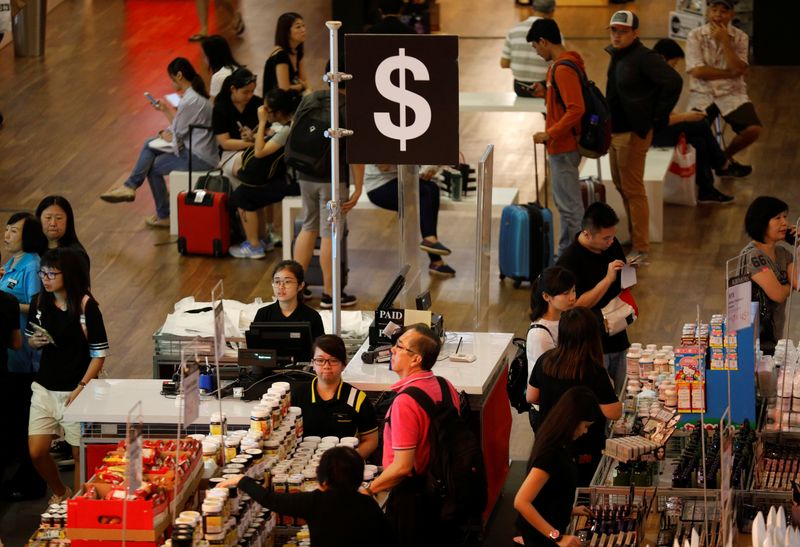SINGAPORE (Reuters) - Singapore's main price gauge slipped into deflation for the first time in over a decade in February, data showed on Monday, as the coronavirus pandemic drove declines in airfares and holiday expenses.
Economists polled by Reuters had been expecting a 0.1% year- on-year rise in core inflation - the central bank's favored price measure.
But the downturn in prices in the services sector due to the outbreak led to a fall of 0.1% from a year earlier - the first deflationary print since January 2010.
Singapore's headline consumer price index rose 0.3% from a year earlier, slightly below poll expectations of 0.35%.
On a month-on-month basis, headline inflation rose 0.1%, while core prices were down 0.1%.
Inflationary pressures are expected to remain subdued in the near term, Singapore's trade ministry and central bank said in a joint statement, citing sharp falls in oil prices, weak labor market conditions and the coronavirus-driven global economic slowdown.

The city-state - which has banned entry to travelers to try to limit imported virus cases which have risen sharply in recent days - said similar containment measures abroad could lead to upward price pressures on imported food.